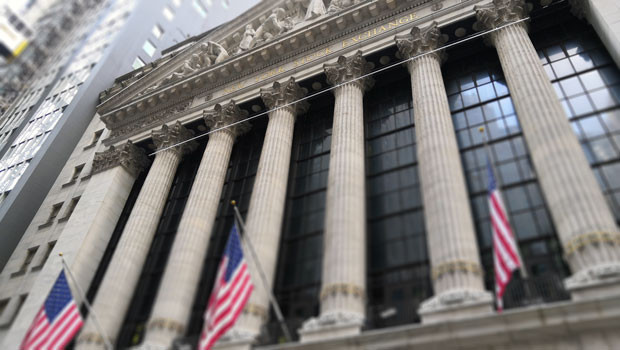US close: Stocks record heavy losses as Russia-Ukraine conflict weighs on sentiment

Wall Street stocks were firmly in the red at the close on Monday after oil prices surged to a multi-year high amid the ongoing Russia-Ukraine war, heightening fears the conflict will slow the US economy and raise inflation.
At the close, the Dow Jones Industrial Average was down 2.37% at 32,817.38, while the S&P 500 was 2.95% softer at 4,201.09 and the Nasdaq Composite saw out the session 3.62% weaker at 12,830.96.
The Dow closed 797.42 points lower on Monday, extending losses recorded in the previous session as stocks came under renewed selling pressure at the end of the week after traders opted to take some risk off the table.
Oil prices shot up to their highest level in over a decade prior to the open but West Texas Intermediate crude futures trading just 0.5% higher at $116.26 per barrel in early trading, pulling back from $130 per barrel earlier in the morning, while Brent crude was up 1.89% to $120.34 per barrel after earlier reaching $139.13 per barrel — the highest level seen since July 2008.
US Secretary of State Antony Blinken stated the US and allies were mulling over putting a ban on all Russian oil and natural gas imports in response to Moscow's attack on Ukraine, while House Speaker Nancy Pelosi said the chamber was "exploring strong legislation" to ban the import of Russian oil as part of an effort to "further isolate Russia from the global economy".
Over the weekend, planned evacuations from the cities of Mariupol and Volnovakha on Saturday were scrapped after Russia violated a humanitarian ceasefire agreement, with fighting carrying on in or around both cities, while Mariupol City Council also said on Sunday that Moscow had again violated a second temporary cease-fire that would've enabled civilians to flee the area.
Civilians attempting to flee the town of Irpin, outside of Kyiv, were also killed, including a family of four with two young children, as they were "bombarded" with shells, leading UK prime minister Boris Johnson to brand the invasion as having sunk further into "a sordid campaign of war crimes and unthinkable violence against civilians".
In the corporate space, energy stocks like Baker Hughes, ConocoPhillips and Exxon Mobil all traded higher, while bank stocks like Citigroup and US Bancorp struggled.
On the macro front, consumer credit increased $6.84bn in January, according to the Federal Reserve, the least since January 2021, easing from an upwardly revised $23.38 bn gain in the previous month, and well below market expectations of a $23.8bn rise.
The yield on the benchmark 10-year Treasury note was also higher at 1.780%.